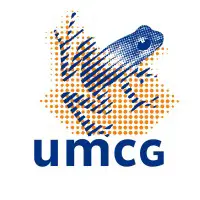Related Services
Software Development and Cloud
Industry
Healthcare
Company
Xebia
The University Medical Center Groningen (UMCG) is one of the Netherlands’ leading academic hospitals, renowned for its integration of healthcare, education, and research. As such, UMCG is committed to delivering top-tier medical services and advancing medical science.
Why
Reach and engage a broader audience of medical professionals
What
An end-to-end reimagination of Virtual Patient for iOS, Android, and the web
How
Bring Virtual Patient to mobile phones and rebuild the editorial web application in 8 weeks
Reimagining Virtual Patient
The original Virtual Patient ran as a simple Microsoft Teams plugin where learning was a top-down process. Medical trainers would start a scenario from their editorial web application, which would trigger the Teams plugin to play the scenarios for the medical residents. They were encouraged to play through the scenario and to discuss the questions with their peers.
A revamp was needed due to the Teams API being phased out by Microsoft. With the choice being between migrating their Teams plugin to the new API or taking the success from their proof of concept and re-envision Virtual Patient, UMCG chose the latter and reached out to Xebia to guide them on this journey. From this collaboration came the vision to create a mobile application that could reach medical professionals outside of UMCG and open up Virtual Patient to established and aspiring medical professionals worldwide.
The project’s primary objective was to re-create and improve upon the core functionality of Virtual Patient. With this aim, Xebia collaborated with UMCG to re-conceptualize Virtual Patient into a mobile application. Envisioning not only new and enhanced functionalities but also opening up the library of patient care scenarios so knowledge would be widely accessible to medical professionals around the world.
The project’s primary objective was to re-create and improve upon the core functionality of Virtual Patient. With this aim, Xebia collaborated with UMCG to re-conceptualize Virtual Patient into a mobile application. Envisioning not only new and enhanced functionalities but also opening up the library of patient care scenarios so knowledge would be widely accessible to medical professionals around the world.
A Race Against The Clock
Xebia dispatched two of its expert software consultants to spearhead the development of a new infrastructure, a new editorial web application and a new mobile application for Virtual Patient. Together with UMCG, we realized a complete overhaul of the editorial application was needed to tailor to the needs of the mobile application. This overhaul also provides UMCG with a future-proof editorial environment that lays a solid foundation for introducing new functionalities.
Xebia dispatched two of its expert software consultants to spearhead the development of a new infrastructure, a new editorial web application and a new mobile application for Virtual Patient. Together with UMCG, we realized a complete overhaul of the editorial application was needed to tailor to the needs of the mobile application. This overhaul also provides UMCG with a future-proof editorial environment that lays a solid foundation for introducing new functionalities.

“New learning technologies are critically important to secure the future of healthcare. Xebia was instrumental in developing a new technology that excels within the complex teaching and care environment.”
.webp)
Laurens Reinke
Innovation Lead at WIOO (UMCG)
Key Technologies Driving this Project Include:
- React, used for the editorial environment to secure long-term maintainability, and which runs on the web.
- Expo, a React Native framework that allowed the team to develop both the Android and iOS app for Virtual Patient, streamlining the process of introducing new features in the future.
- Firebase, a GCP product used as the cloud solution that offers a complete set of tools for our back-end and
deployment infrastructure, helping reduce costs and complexity while providing the modern services necessary to continuously evolve digital products at speed.
Propelling Virtual Patient Forward Through Strategic Migration
Having successfully piloted the Virtual Patient proof-of-concept within a limited Microsoft Teams-based user pool, UMCG saw the potential of its mobile application to expand its reach among medical professionals. With funding in place, the team embarked on an ambitious 8-week project with three core objectives:- Rebuild the editorial environment
- Ensure a more intuitive and engaging user experience
- Transition the application from Microsoft Teams environment to a standalone presence on the Apple App Store and Google Play Store
The migration aimed not only to expand access to the app but also to solidify Virtual Patient's position as an innovative tool in medical training and simulation.
Building a Foundation for Success with Time to Spare
Working against such a short timeline, Xebia’s consultants prioritized selecting tools that would
accelerate development while facilitating the seamless integration of new features. As 2023 drew to a close, Xebia successfully met the deadline, delivering two wholly new applications that were built from the ground up, met the core objectives, leveraged the most leading-edge technology, and most importantly laid the foundation to grow with UMCG, as well as the needs of medical professionals around the world.
accelerate development while facilitating the seamless integration of new features. As 2023 drew to a close, Xebia successfully met the deadline, delivering two wholly new applications that were built from the ground up, met the core objectives, leveraged the most leading-edge technology, and most importantly laid the foundation to grow with UMCG, as well as the needs of medical professionals around the world.


